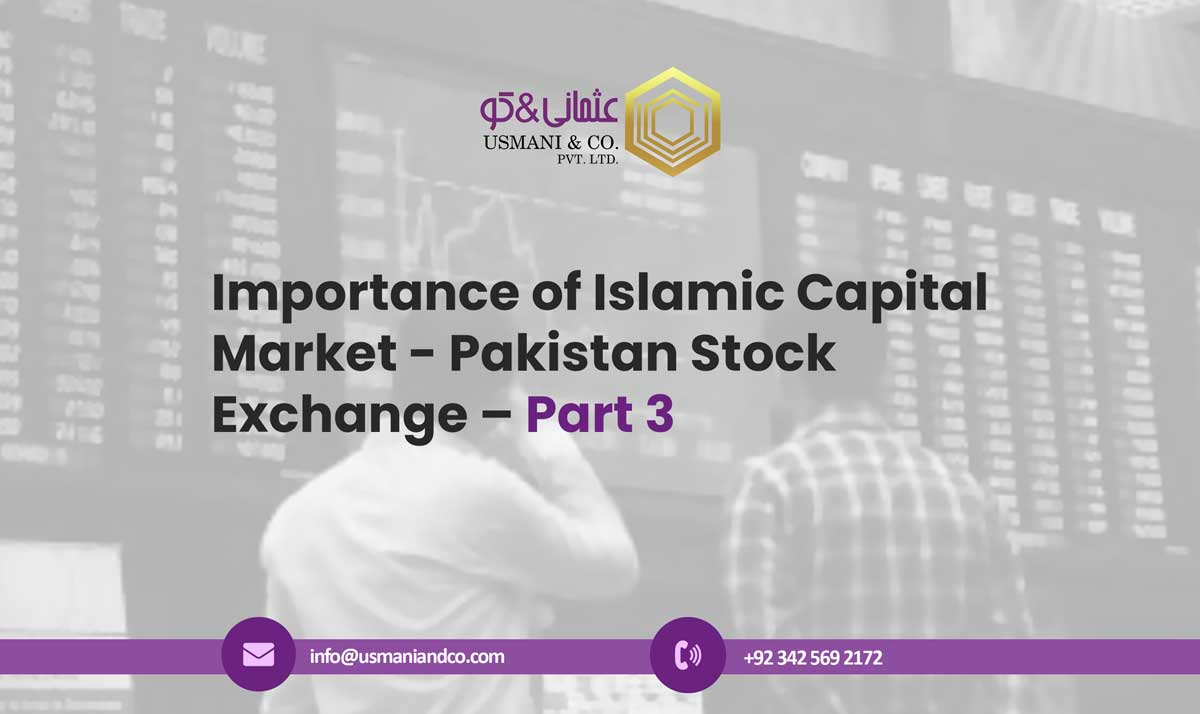There are certain other related issues: Type of Trade
1- Right share issue: A company usually issues right shares to the existing shareholders in proportion to their existing shareholding in the company so as not to dilute their investment proportion. From shariah perspective if the company is shariah complaint it can issue right shares which after subscription will become ordinary shares and people who are holding these shares and they have the right to subscribe to these shares can invest in the company. However, , the letter of right(LOR) , or the option that the investor has, to invest in those companies cannot be traded. There is a trend in the market that LOR is traded in the market at a discounted price which is not allowed in Shariah. However, once they become ordinary shares they can be traded in the market.
2- Shares Buy Back: The term buy back is referred to in Islamic finance as Bai Innah which is not allowed. The term “shares buy back” is usually used in two different types of transactions in which one of them is allowed and the other one is not allowed. Repo transaction, shares which are shariah compliant is being used as a collateral for interest based lending or borrowing transactions initial transaction is shares are bought by the individual or sold to the initial buyer and that initial transaction of buying those shares are done with the promise to sell it to the concerned at a relatively low price or a higher price depending whether it is a repo transaction or a reverse repo transaction then these transactions are non shariah compliant because it involves riba as well as Bai Innah.
Another transaction which is allowed is when a company having a limited authorized capital, comes to a state where that company has issued and subscribed a paid up capital nearing its authorized capital and it’s a cash rich company and that particular company itself calls for a buyback of its issued, subscribed and paid up capital shares from the market from the existing share holders , this kind of transaction is also called shares buy back by the company , the underlying structure in this kind of transaction is allowed. This kind of transaction is shariah compliant and is allowed.
3- Direct purchase of shares on floatation. IPO: Companies shares are issued to the public for the first time. As soon as the offering is announced in the form of offering document, the brief overview of the company’s operations and financial statements are shared by the general public and the financial statements are evaluated by the scholars on the basis of screening criteria – KMI – If that company is deemed as shariah compliant then one can apply to purchase the shares at initial public offering.
4- Once a Muslim investor becomes a partner in a company, that is a Muslim investor has purchased equity in a company, all the operations should be done in a sharia compliant manner A Muslim Investor should make sure that there is no activity that is being done by the company that is impermissible. In case there is impermissibility, a Muslim investor needs to show his discomfort. As this is a shariah compliant company that means the non-compliance is not their major activity it must be their minor activity. However, we are trying to remove those minor activities from the operations as well.
The ways of showing discomfort:
- Writing a letter to the management as a partner of the firm or the organization that no non shariah complaint activity takes place.
- Attend the annual general meeting of the company and raise this concern. As a law all the activities of the annual general meeting needs to be minuted and recorded. As a Muslim investor we need to ensure that even a minor investment should not be used for any non shariah complaint activity.
5- Carry over transactions(COT) or continuous funding System(CFS)/BADLA: Carry over transactions is a financing arrangement where interest-based lending or borrowing is done in order to invest in shares, whereby an investor can invest or purchase shares through borrowing on interest.
Making investments in equity by taking finance on badla and paying interest on finance acquired is considered as a riba based borrowing product. We cannot invest in a non shariah compliant manner even if the shares acquired are shariah compliant. The borrower as well as the lender in carry over transactions (BADLA) are both indulging themselves in Riba.
6- Day Trading (Trading before settlement): The shares are settled on T+2 market on the third day after purchasing them. As soon as the shares are purchased, the risks and rewards are passed onto the new buyer. However, the scholars have pointed out that indulging in trading prior to settlement of those shares can lead to shariah non-compliance and therefore is disallowed even though the risks and rewards are passed onto the buyer. PSX guarantees that if the seller fails to deliver the shares that he has sold, on the ready market at the time of settlement, then PSX will purchase those shares from the market at any price and will make sure to give the delivery to the buyer and charge the difference in price to the defaulting member which suggests that during that particular type of trade the class of scrips are identified but exactly those scrips are not identified unless they are settled on the spot market or the ready market on the third day. Since there is ambiguity on the exact identification of the scrips therefore it is advised by the scholars not to enter day trading or trading before settlement.
7- Short Selling: If there is a bearish market trend, and the prices of scrips are going down the investors sell those shares and since it is a net settlement-based trade sale so initially they sell it and then subsequently purchase those quantity of shares at a lower price to earn a handsome profit. From a shariah perspective, if one does not have anything in hand, he cannot sell it. Therefore, short selling is unethical and forbidden in Shariah.
While making an Islamic investment we need to make sure that all these avenues are taken care of by fund manager or priory approved by a qualified, learned shariah scholar. These are all the ways where a company or individual can make shariah compliant investments directly.
8- Investment through Islamic mutual funds or through asset management companies or fund managers: Important pillar of Islamic capital market is through equity investments, musharakah mode of Islamic contract is used on the liability side. The Islamic financial institutions (IFI) invest those funds in many shariah compliant avenues. Once the profit is earned, it is shared between bank and the depositors.
On the other hand, second type is called Modaraba where the depositors called Rab ul Maal invest their money in the bank and the IFI called Modarib uses its expertise and invests those funds in many profit-sharing avenues. Once the profit is earned, that is shared between the bank and the depositors in a pre-agreed profit sharing ratio.
The third structure, wakalah structure on the liability side is not so common, Islamic mutual funds, is on the basis of Wakalah, the asset management company usually known as the fund manager and they act as wakeel ,as an investment agent of the unit holders or the owners of the fund. An entity, called Islamic mutual fund is managed by asset management companies manages quite different funds. The unit holders are the actual owners of the fund. The Trustee, which acts on behalf of the unit holders, takes the administrative decisions of the fund. Islamic investment funds can have multiple structures, open ended mutual funds, closed ended mutual funds, Islamic trust schemes, different investment dimensions: shariah compliant equities, shariah compliant balanced fund, shariah compliant money market fund, shariah compliant fixed income securities like sukuk, invest in Islamic banks. Same is the case with cash funds , there are Islamic cash funds, Islamic exchange traded funds, Islamic real estate investment fund, Islamic capital preservation fund. Nearly all types of conventional mutual funds are available which are shariah compliant.
Details of Islamic Capital Market taken from a webinar presented by: Mr Farhan ul Haq Usmani
Executive Vice President and Head of Shariah Audit
Meezan Bank
Composed by: Sadaf Sawant
Panel Member Shariah Advisory
Usmani and Co.
Jamia Dar Ul Uloom, Karachi



